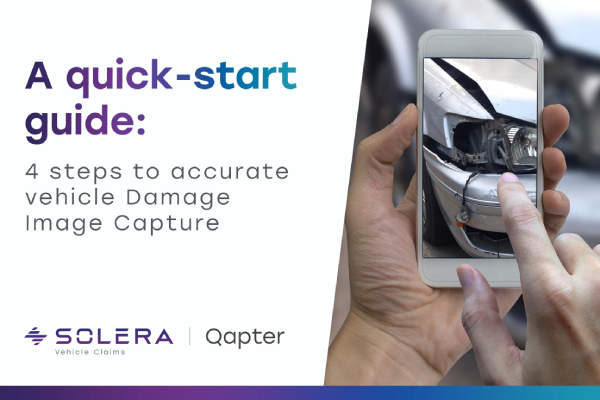Solera’s Vice President of Industry Relations Bill Brower explains the key steps involved in capitalizing on the enormous potential of integrating AI-enabled services in the automotive industry
Statistics show that more people are choosing technology to report and process automotive claims than ever before.
Research conducted in Solera’s Innovation Index 2022 revealed almost half of all consumers (49%) desire a fully digital self-serve motor claims experience, with 79% trusting automotive claims powered by Artificial Intelligence (AI), while 34% had completed motor claims without ever speaking to a human.
Body shops are readily adapting to meet the demands of this tech-savvy consumer base by embracing AI – with 100% claiming they had invested (or were willing to invest) in such software within the next 6-12 months.
But what’s the answer to successful AI integration? Here, we look at some of the key considerations body shops should make when introducing tech to the customer journey.
Outlining Objectives
To reap the benefits of tech, body shops must choose software capable of meeting their core objectives.
Solera’s study found the biggest drivers of AI adoption among these organizations are: automating customer interactions (52%); improving employee safety (49%); offering predictive service and maintenance (48%) and the provision of self-service First Notification of Loss (FNOL) with image capture (41%).
Once body shops identify exactly where their priorities lie, engaging AI software throughout the business becomes an easier task that promises a greater chance of success.
Scaling and Stakeholder Engagement
One of the biggest barriers to integrating tech in body shops is the associated costs. However, research has shown that the value of AI clearly outweighs the financial challenges – empowering businesses to make critical efficiency, environmental and safety gains.
Allocating a budget for AI has become an essential part of any body shop’s modern business strategy – with companies now putting plans in place to scale and achieve wider buy-in from stakeholders.
It is crucial to move away from the mindset of tech as merely another “expense” and instead consider it a necessary investment to push the company into the future. It’s time to leverage tech to automate much of the shop administrative work to simplify the claims workflow, improve customer service and reduce manual tasks to take advantage of lower operating costs and higher productivity
Going Green
Modern body shops should always be striving to improve their sustainability – and switching to AI can help to accelerate this ambition.
The use of AI can extend the life-cycle of vehicle parts, overcome shortages and reduce reliance on planet-damaging energy sources/materials – while also appealing to a wider customer base. Stats show that 64% of customers favor body shops using AI to source environmentally friendly green parts.
AI features help to make greener working a reality – rendering the transition to tech fully justified.
The Future of the Automotive World is AI
Concerns and obstacles surrounding the implementation of AI can be overcome through an effective strategy that outlines objectives, raises stakeholder engagement and champions sustainability.
AI is already changing the way the automotive world operates, with smart tech emerging as an indispensable part of body shop working processes. By addressing the key considerations of AI implementation, companies can make the transition period smoother and accelerate success.
Discover more about how body shops are integrating technology – and the pivotal role that AI is playing in automotive claims – by viewing Solera’s Innovation Index 2022 in full here.






